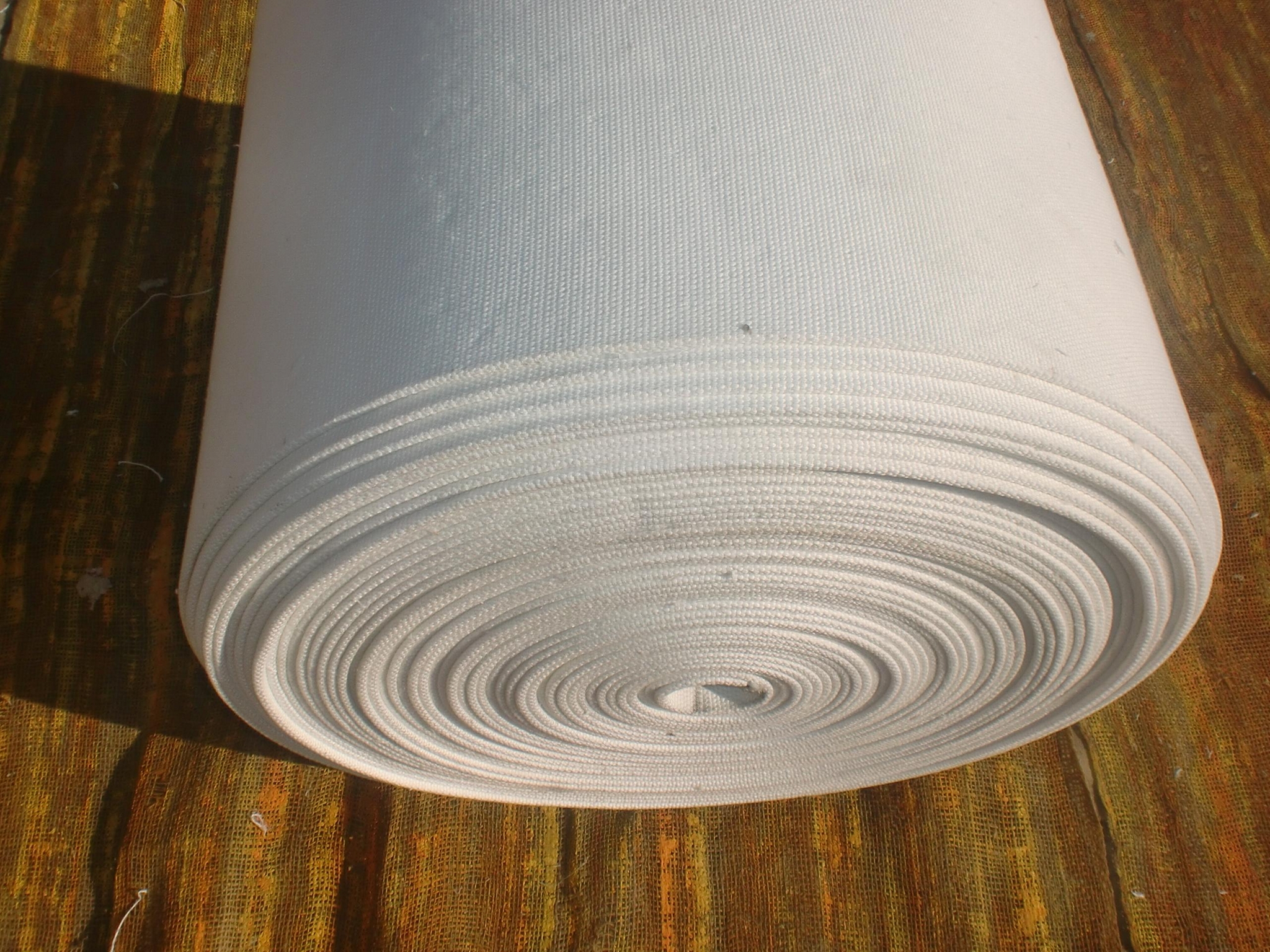Processing and processing of special industrial fabrics, characteristics and uses

Special industrial fabrics have a wide range of applications in many fields, and their types and uses are classified based on multiple factors. This article will provide a detailed introduction to the classification methods of special industrial fabrics, as well as the characteristics and uses of various fabrics.
1、 Divided by fiber composition
Natural fibers
Natural fibers refer to fibers obtained from nature, including cotton, linen, wool, silk, etc. These fibers have excellent physical and chemical properties, thus occupying an important position in special industrial fabrics.
Cotton fiber has good breathability and moisture absorption, so it has been widely used in the manufacturing of work clothes, protective clothing, wiping cloths and other products. Hemp fiber has high strength and wear resistance, so it is used to manufacture products such as wiping cloths and conveyor belts. Wool fibers have good insulation and elasticity, and are therefore used in the manufacturing of products such as blankets and workwear. Silk fibers have good luster and texture, so they are used to manufacture high-end specialty industrial fabrics.
Chemical fibers
Chemical fibers refer to fibers synthesized through chemical methods, including polyester, nylon, acrylic, polypropylene, etc. These fibers have excellent physical and chemical properties, making them widely used in special industrial fabrics.
Polyester fiber
Polyester fiber has high strength and wear resistance, and is therefore used in the manufacturing of products such as wiping cloths, transport belts, and protective clothing. Nylon fiber has good resistance to temperature and wear, so it is used to manufacture products such as high-temperature wiping cloths and conveyor belts. Acrylic fiber has good thermal insulation and anti-static properties, and is therefore used in the manufacturing of workwear and protective clothing products. Polypropylene fiber has good acid, alkali and corrosion resistance, and is therefore used in the manufacturing of filter materials and protective covers.
2、 Divided by yarn structure
Single yarn
Single yarn refers to a yarn composed of a single fiber, which has high strength and wear resistance. In special industrial fabrics, single yarn is often used to manufacture products such as base materials and reinforcement materials.
Strand line
Strand yarn refers to a yarn formed by combining two or more single yarns, which has good flexibility and durability. In special industrial fabrics, strand thread is often used to manufacture products such as stitching, ropes, and straps.
special yarn
Special yarn refers to yarn that has undergone special treatment, including twisting, jet deformation, etc., and has good wrinkle resistance and breathability. In special industrial fabrics, special yarns are often used to manufacture high-end workwear, protective clothing, and wiping cloths.
3、 Divided by fabric organization
Plain weave fabric
Plain weave fabric refers to a fabric made by interweaving warp and weft yarns every other strand, with a simple structure and a strong texture. In special industrial fabrics, plain weave fabrics are often used to manufacture products such as base materials and reinforcement materials.
Twill fabric
Twill fabric refers to a fabric made by weaving warp and weft yarns at a certain angle, which has good wrinkle resistance and breathability. In special industrial fabrics, twill fabrics are often used to manufacture products such as work clothes, protective clothing, and wiping cloths.
Satin fabric
Satin fabric refers to a fabric made by interweaving warp and weft yarns in a parallel or nearly parallel manner, with a smooth and soft surface. In special industrial fabrics, satin fabrics are often used to manufacture high-end workwear, protective clothing, and wiping cloths.
4、 Divided by post-processing method
Dyeing treatment
Dyeing treatment refers to the process of impregnating fibers or fabrics in dyeing solution to make them colored. Dyeing can change the color and appearance of fabrics to meet different needs. In special industrial fabrics, dyeing treatment is often used to manufacture products such as work clothes, protective clothing, and wiping cloths.
Printing treatment
Printing processing refers to the process of printing patterns onto the surface of a fabric. Various patterns and special effects can be produced through printing processing to meet different needs. In special industrial fabrics, printing treatment is often used to manufacture products such as work clothes, protective clothing, and wiping cloths.
Coating treatment
Coating treatment refers to coating one or more layers of thin film on the surface of a fabric to alter its properties and appearance. Coating treatment can increase the waterproof, oil resistant, anti-static, flame retardant and other characteristics of fabrics, making them have better performance in special environments. In special industrial fabrics, coating treatment is often used to manufacture products such as protective clothing, tents, and umbrellas.
Calendering treatment
Rolling treatment refers to the surface treatment of fabrics using a rolling machine to make their surfaces smoother and more delicate, while also improving their waterproofing and wear resistance. In special industrial fabrics, calendering treatment is often used to manufacture high-end wiping cloths, packaging materials, and decorative fabrics.
Singeing treatment
Burnt treatment refers to the process of burning the surface of a fabric with a high-temperature flame to remove fuzz and impurities, making the surface smoother and cleaner. In special industrial fabrics, singeing treatment is often used to manufacture high-end workwear, protective clothing, and wiping cloths.
Heat setting treatment
Heat the fabric to a certain temperature to give it shape memory function, in order to improve the dimensional stability and wrinkle resistance of the fabric. In special industrial fabrics, heat setting treatment is often used to manufacture products such as work clothes, protective clothing, and wiping cloths.
Antistatic treatment
By adding anti-static agents to fabrics or using special post-processing techniques to enhance their anti-static properties, it is possible to avoid the accumulation of static electricity that can cause harm to equipment and personnel. In special industrial fabrics, anti-static treatment is often used to manufacture products such as work clothes, protective clothing, and wiping cloths.
Antibacterial and deodorizing treatment
Add antibacterial agents and deodorants to fabrics to inhibit bacterial growth and reduce odor production. In special industrial fabrics, antibacterial and deodorizing treatment is often used to manufacture products such as work clothes, protective clothing, and wiping cloths.
Flame retardant treatment
To reduce the occurrence of fire accidents, flame retardants can be added to fabrics or special post-treatment processes can be used to enhance their flame retardant properties. In special industrial fabrics, flame retardant treatment is often used to manufacture products such as protective clothing, tents, and sunshades.
Wear resistant reinforcement treatment
Add wear-resistant materials or reinforcing fibers on the surface or inside of the fabric to improve its wear resistance and durability. In special industrial fabrics, wear-resistant reinforcement treatment is often used to manufacture products such as transport belts, transmission belts, and straps.
In short, there are various treatment methods for special industrial fabrics, and different treatment methods can improve the performance and appearance of fabrics to meet different needs and occasions. In practical applications, it is necessary to choose appropriate processing methods based on specific situations to ensure optimal performance and effectiveness.
-
 Email:wanss@kusan-if.com
Email:wanss@kusan-if.com
-
 website:www.kusan.cn
website:www.kusan.cn
-
 business address one:No. 3, Futai Road, Lancun Town, Jimo District, Qingdao, Shandong business address two:No. 99, Fengjin Road, Shangma Street, Chengyang District, Qingdao, Shandong
business address one:No. 3, Futai Road, Lancun Town, Jimo District, Qingdao, Shandong business address two:No. 99, Fengjin Road, Shangma Street, Chengyang District, Qingdao, Shandong

Scan the code
Copyright © 2020-2030 www.kusan.cn Qingdao Jiushan Textile fabric Co., Ltd. All Rights Reserved
website:www.kusan.cn address:No. 3, Futai Road, Lancun Town, Jimo District, Qingdao, Shandong ICP Certificate: ICP Lu No. 20021986-1

 简体中文
简体中文 Japanese
Japanese 한국어
한국어
